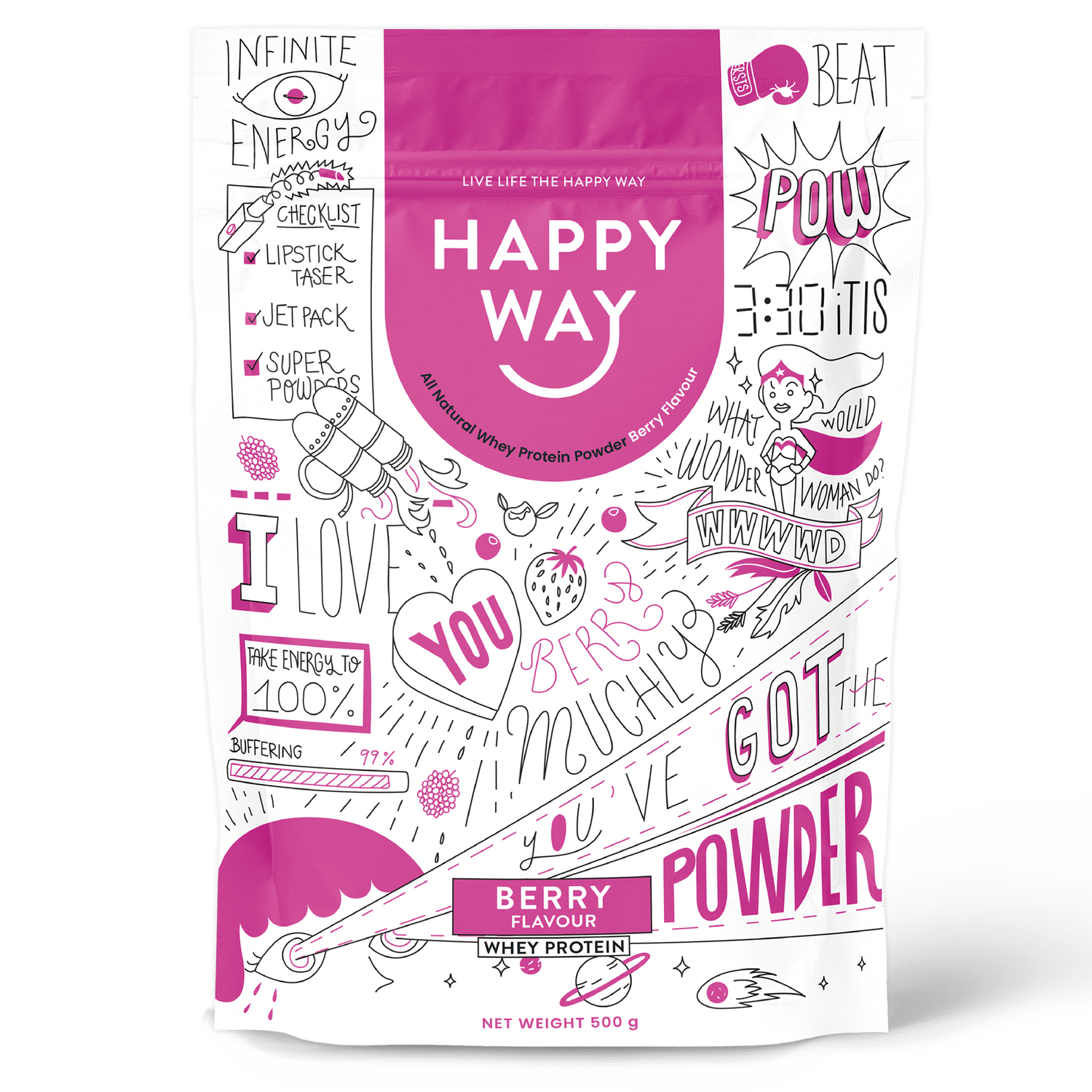The Inside ‘Scoop’ on Pre-Workout Supplements
By Sports Dietitian & Accredited Practising Dietitian, Rose Maclean
As a Sports Dietitian, one of the most common questions I receive is about pre-workout nutrition. What should you eat before training? When should you eat it? And are pre-workout supplements necessary? In this comprehensive guide, we'll dive into the science of pre-workout supplements including their benefits, potential risks, and how to choose the right one for you. In the end, you’ll be left with some practical tips to help you optimise your performance regardless of whether you take a supplement or not.
Basics of Nutrition:
Before we get into it, let’s explore the ‘foundations’ of nutrition first. Nailing your nutrition, and hence your performance, is kind-of-like building a cupcake. You can’t skip straight to the fancy stuff (aka the supplements) if you haven’t worked on and constructed the base first (aka nutrition foundations).
Using caffeine to ‘get you through’ a session, on top of an empty fuel ‘tank’, is like temporarily putting a bandaid over the ‘wound’. We've probably all done it, but it's an inefficient approach that negatively impacts your performance, recovery, and potential health in the long run. Instead of addressing things at the surface-level, let’s work on addressing the actual underlying issue.
In sports nutrition, those foundational needs include getting enough total daily energy (i.e. calories/kilojoules) to support your daily activities, training, and lifestyle, which is further broken down into adequate macronutrients and micronutrients, to support your goals. Following on from this, a concept known as ‘nutrient timing’ can be further beneficial (i.e. having enough and the right types of carbohydrates around your training to support your energy levels, performance and recovery).
Then, once you can confidentially tick off the above, moving to the fancy, often-more-exciting-stuff, like supplements, may be useful.
But, with so many supplements out there, which ones may be actually ‘worth it’?
Evidence Based Supplements:
As a Sports Dietitian, my top supplements which are backed by years of high-quality research to support their use and safety include:
- Caffeine – arguably the ‘holy grail’ when it comes to performance. Can assist in mental focus, hence alertness, endurance at lower dosages, plus strength at higher dosages + reduces perception of effort of training. Effective Dosage: 1-3 mg/kg/BWT for reduced perception of effort – i.e. training ‘feels’ easier OR higher dosages for improved strength (consult with a Dietitian/ trained medical professional to determine an amount appropriate and safe for you)
- Beta-alanine – aka the ‘tingles’ supplement. A simplified version of the science suggests that b-alanine reduced feelings of fatigue by preventing lactic acid build-up which can occur during certain types of sessions. Effective Dosage: 4-6 g/day (consistency is the key, timing not as relevant)
- Creatine Monohydrate – allows you to produce more ATP (aka energy) more efficiently, to fuel your muscles during training, which can in-directly increase muscle mass also. Effective Dosage: 3-5 g/day (maintenance dose, again, consistency is key with this and timing is not as relevant)
- Citrulline Malate – can assist in improved blood flow, plus some research also suggesting improved recovery (from muscle soreness) also. Effective Dosage: 6-8 g/day (consistency not required, usually taken ~30-60 minutes prior to training)
- Electrolytes: Sodium, potassium, and/or magnesium are often included to support hydration and muscle function, particularly during prolonged or intense exercise.
There are certainly more to add to the list, however these are common science backed supplements that I recommend to my clients.
What about Pre-Workout Supplements?
Where do pre-workouts, such as Happy Way’s Preworkout, come into this? Well, the beauty about pre-workouts is that they often combine all of these into the one mix, so it often acts as a more ‘convenient’ solution for many, but is this always the case?
Pre-workout supplements are designed to optimise specific benefits including:
- Increased Alertness/ Focus - ingredients like caffeine can promote wakefulness, blocking adenosine receptors in the brain (aka blocking ‘tiredness’ signals), making it easier to power through intense workouts. Pre-workouts often contain a higher dose of caffeine, which can have pros & cons. This also provides an alternative for those who don’t like the taste of coffee!
- Improved Performance - creatine and beta-alanine can improve strength, power, and endurance, helping you get more out of your training sessions.
- Improved Blood Flow - nitric oxide boosters can enhance blood flow, delivering more oxygen and nutrients to working muscles, which can improve performance and recovery.
- Hydration – electrolytes, combined with fluid may assist with adequate hydration. Although this has not been undertaken in clinical trials, it makes more sense that the flavour some of these provide, may encourage individuals to drink more water and therefore prevent dehydration due to the palatability of water.
Although, like with many things, there can also be some down-falls to taking pre workout supplements such as:
- The beneficial ingredients may not be in optimal dosages - you may find that some pre-workouts may miss the mark in a sense of the recommended dosages for these previously listed ingredients (to elicit performance effects). For some, if performance is their goal, it can be far more efficient to isolate the specific ingredients relevant for you and your goals, to ensure you’re consistently meeting the recommended amounts. But, this is a case-by-case situation as convenience is of course a big win with pre-workouts.
- Digestive Issues – pre-workout powders may not be tolerated well by those with IBS. Caffeine is a known irritant itself for people with IBS, plus ingredients like artificial sweeteners can also exacerbate symptoms for some individuals.
- Jitters and Anxiety - high doses of caffeine can cause jitteriness, anxiety, and even heart palpitations in some individuals, plus with the combination of B-alanine also which is known to cause ‘tingling’ sensations; in some people. In severe cases, banned, yet accessible products may contain very high doses of caffeine which poses a health risk to the individual.
-
Sleep - combining multiple stimulants, particularly in the afternoon (i.e. if training in the afternoon/night time) can disrupt sleep, namely sleep quality. Caffeine has a long half-life, meaning even after hours of consuming caffeine, half of the caffeine content can still remain in your system. To avoid these potential negative effects on sleep, it is recommended to not consume caffeine past midday, however individual tolerance and variability may apply.
Of course you can get ‘non-stim’ pre workout supplement options, where they have removed the caffeine component, yet still include ingredients likely to improve blood flow (i.e. b-alanine, creatine, citrulline, etc)
Choosing the Right Pre-Workout Supplement:
If you decide to use a pre-workout supplement, it’s essential to choose one that aligns with your goals and is safe for your health. Here are some tips:
- Read the Label: Avoid blends that don’t specify ingredient quantities. Look for a product that clearly lists its ingredients and their amounts. If your goal is to optimise performance and you notice a few ingredients falling short in terms of the ‘effective dose’ as suggested by research, it may be worth isolating these particularly supplements and taking them separately also (consult with a Sports Dietitian for tailored advice based on your goals)
- Check for Certification: Choose supplements that are certified by third-party organisations, such as Hasta or Informed-Sport, to ensure there is minimal risk of them containing banned substances and contaminant. Depending on an athlete’s level of sport and/or federation, anti-doping rules may apply. The use of supplements carries risk, not only for doping, but also for health risks. While batch-tested products have the lowest risk, they cannot offer a guarantee that the products are completely free of contamination risk.
- Start with a Low Dose: If you’re new to pre-workouts, start with a lower dose to assess your tolerance, particularly to stimulants like caffeine.
- Consult a Professional: Always consult with a healthcare provider or sports dietitian before starting any new supplement, especially if you have any underlying health conditions or are taking other medications.
Natural Alternatives to Pre-Workout Supplements
For those who prefer to avoid supplements, there are more ‘natural’ ways to boost your pre-workout nutrition (remember, these are the ‘foundations’ or that cupcake base that we should be aiming to nail beforehand anyhow).
Pre-workout nutrition can optimise energy, strength, and endurance during a session. The primary goals are to:
- Fuel Your Muscles with a carbohydrate rich meal and/or snack: for moderate to high intensity training, carbohydrates become our primary fuel source. Consuming carbs before a workout helps to replenish glycogen stores, ensuring you have the energy needed for mod-high intensity activities. Whilst caffeine is effective, it essentially ‘mimics’ energy (it blocks tiredness signals in the brain), whereas food provide carbohydrates = energy. Depending on the timing of your training aim for the following as guidelines:
o 2-4 hours before: aim for complex carbohydrates like whole-grains, with a balance of protein, healthy fats, and veggies (i.e. a meal).
- An example could be a rice bowl with chicken breast, roast veggies/ salad, and avocado/ a tahini dressing.
o 1-2 hours before: a carbohydrate rich snack (aiming for more simple or ‘training’ carbs here). With moderate protein.
- An example could be an oat bar with a yoghurt OR a banana or mango smoothie with protein powder/ yoghurt
o 30-60 minutes before training: that final ‘boost’ or ‘top up’ of training carbs prior to training – lowest in fat & fibre. Emphasis on ‘simple’ carbs here to avoid potential gut discomfort during training.
- Examples include a large banana, ~2 medjool dates (pitted), dried fruit, an oat/honey bar or similar, a crumpet with honey and/or sliced banana, raisin toast, sips of a sports drink, etc.
*If you are not used to carbs directly before your session you can start off small and work your way up in terms of quantities, reaching an amount that you ‘feel best’ with. Remember: we are trying to navigate negative food language such as ‘good’ and ‘bad’ carbs Content is important and these types of carbs have a specific purpose for the intention of fuelling, performance, and gut comfort during training.
- Stay Hydrated: Ensuring you are well-hydrated before your workout can improve performance and delay fatigue. Hydration strategies are individualise to the person, but as a general guide, aim for a pale-yellow urine colour as just one indicator of adequate hydration.
- Aim for Adequate Rest: Rest is one of the most underrated aspects of performance & recovery. As a Dietitian I understand life gets busy, but where possible, aim to optimise sleep, aiming for 7 hours or greater (and this recommendation is even higher for elite athletes).
- Optional - Add on: coffee or green tea: both provide a natural source of caffeine for an energy boost (if tolerated and/or not a disadvantage to your sleep)
Conclusion:
Pre-workout supplements can offer benefits, but they are not a one-size-fits-all solution. The decision to use them should be based on the individual, their specific needs, goals, and tolerance. Convenience is a big plus when it comes to pre-workouts, such as Happy Way’s, plus they also provide an alternative solution for those who may not like the taste of coffee, and are wanting a slight caffeine ‘hit’, or a tasty “thirst quencher”. Yet, remember, no supplement can replace the foundation of good nutrition, adequate sleep, and consistent training. Always consult with a professional to create a personalised plan that works best for you, especially if you are unsure if a supplement is 1) effective and/or 2) safe/ permitted in your sport.









